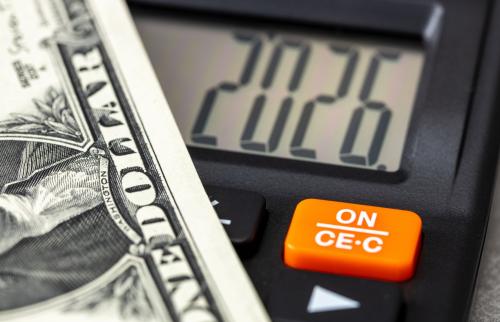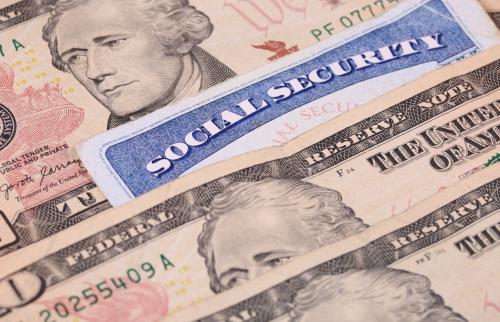Using the tax code to promote or alter behaviour the government likes or dislikes has been common but controversial for generations. In the days of Lyndon Johnson, much housing was produced by faith-based organisations financed by tax-advantaged funds; and “sin taxes” on cigarettes and alcohol are routine everywhere. The housing was grim and sin taxes are a great hardship to the addicted poor – but at least the intentions were good. The Bush administration, by contrast, is the first to propose tax changes that will punish activities everybody approves of.
Making dividend income tax-exempt, as President George W. Bush has proposed, may or may not lift spirits and prices on the stock market. What it will do for certain is raise the costs of financing state and municipal government projects and push up interest rates on home mortgages.
States and cities rely on the tax exemption of the income from their bonds and notes to hold down the interest rates they pay on their borrowings. If corporate dividends become tax-exempt too, the first result will be new competition for the money that now goes to municipal bonds. So states and cities will have to bid higher rates to get what they need to build their schools, sanitation plants and court houses. Meanwhile, cash-strapped states and cities with income taxes will lose revenue when the federal definition of income, on which they all rely, is changed for the benefit of share-holders.
Stocks that pay tax-exempt dividends will also compete for public savings with savings accounts in banks and with the great range of fixed-income securities issued by Fannie Mae and Freddie Mac, the mortgage institutions that finance more than half of American housing. So rates on savings accounts and on collateralised mortgage paper will have to rise, which means higher rates on home mortgages. It is worth noting that when former president Ronald Reagan wanted to give a tax benefit to an investment, he promoted the “all- savers” account that exempted Dollars 1,000 a year of interest on savings accounts, to help housing. That was a foolish and short-lived idea, too – it only moved money from one savings-and-loan to another – but at least it had a purpose.
Making dividends tax-exempt will also play havoc with 401(k) and Individual Retirement Account plans, because dividends paid into such accounts are not taxed but withdrawals are. The president’s advisers have scrambled to find a way to revise tax rules of retirement plans, so people whose stock-holdings are in such plans will feel the president is doing something for them, too. So far no plausible solution has been found.
In fact, there is a strong case for eliminating what the president calls the double taxation of dividends. Because US companies pay interest costs from their pre-tax income and dividends from their post-tax income, they rely too heavily on borrowings for their financing, buy back their own stock and distribute it by giving their executives stock options, play various accounting games and in general get into bad habits. Much of that would vanish if the corporate tax treatment of dividends were the same as the tax treatment of interest – if dividends, like interest, could be paid from pre-tax corporate income – but the Bush proposal says nothing of changing corporate tax rules; it only puts more money into the pockets of rich shareholders.
Any programme that earns the hostility of the states and cities, the housing industry and the banks is not likely to go far in Congress but the fact that the president has put forth such proposals says something disconcerting about the decision-making process.
The original scenario spoke only of “fairness”, of benefits to the stock market (and thus indirectly to consumer spending, by a “wealth effect”) and presumed increases in the pool of investment capital. Now wishful thinking has converted this proposal, which marginally increases capital’s share of the national product, into the driving force of a “growth” programme to rectify painlessly the decade of private over-borrowing that burdens the US economy.
There is an abyss here: if the immense federal deficit contemplated by the president’s budget ignites inflationary fires, the legacy of the over-borrowing will cripple any response by the Federal Reserve. The administration crosses this abyss, as always, with a leap of faith.
The Brookings Institution is committed to quality, independence, and impact.
We are supported by a diverse array of funders. In line with our values and policies, each Brookings publication represents the sole views of its author(s).



Commentary
Op-edThe Abyss Beneath Bush’s Tax Reform
March 4, 2003